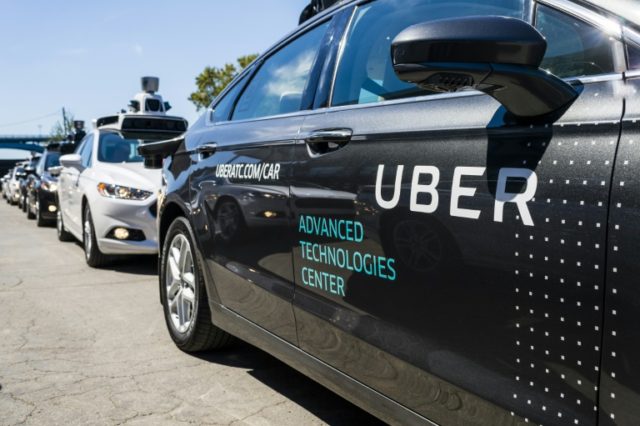New York (AFP) – Accidents involving autonomous cars could slow the advance of the technology and demonstrate the need for tougher federal standards, a leading highway safety advocate said Thursday.
“Having some basic rules of the road that everyone follows will benefit everyone because if one company fails at ensuring safety, it will affect all companies and consumer support,” said Catherine Chase, president of Advocates for Highway and Auto Safety.
In an address to a safety conference at the New York Auto Show, Chase alluded to last week’s fatal accident in Arizona involving an Uber vehicle and called for tougher federal standards and an overhaul of autonomous driving legislation moving through Congress.
Besides the Uber accident, questions about self-driving cars surfaced after another fatal crash last week in California in which a Tesla owner died. Both accidents are under investigation.
Highway safety advocates are bullish on the potential for autonomous driving technologies to help stem the rise of roadway deaths. US road fatalities rose 5.6 percent to 37,461 in 2016, according to the National Highway Traffic Safety Administration.
Some cars already employ automatic braking, steering and other safety-oriented innovations.
The thinking is that broader application of these mechanisms — and the arrival of fully autonomous vehicles — could avert crashes caused by drunk driving or inattention and other human errors.
– Choosing words carefully –
Wall Street and automakers are also eager to push the technology, but surveys suggest the broader public is skeptical but curious about the technology as it becomes more widely discussed.
A January survey by the American Automobile Industry found 63 percent of consumers were fearful of riding in a totally autonomous car, down from 78 percent a year earlier.
Chase said car companies had pointed to the prevalence of human-caused accidents to push for quick deployment of autonomous driving technology. But she warned it could backfire.
The US Department of Transportation has issued “only voluntary guidelines which are toothless and result in companies handing in what are essentially glossy brochures for their vehicles,” she said.
“We believe this doesn’t go far enough to ensure safety, reliability and consumer confidence,” she said.
Kelly Nantel, vice president of the National Safety Council, said autonomous technology had the potential to “revolutionize” auto safety but that carmakers should make clear what the technology can and cannot do.
“We have to be very careful how we name things,” she said. “Calling something ‘Autopilot’ sends a message to the lay consumer that the system is capable of something it isn’t.”
Safety regulators criticized Tesla’s Autopilot after a May 2016 fatal crash, finding that the driver relied too heavily on Autopilot that was made possible under Tesla’s design, according to a September 2017 National Transportation Safety Board report.

COMMENTS
Please let us know if you're having issues with commenting.